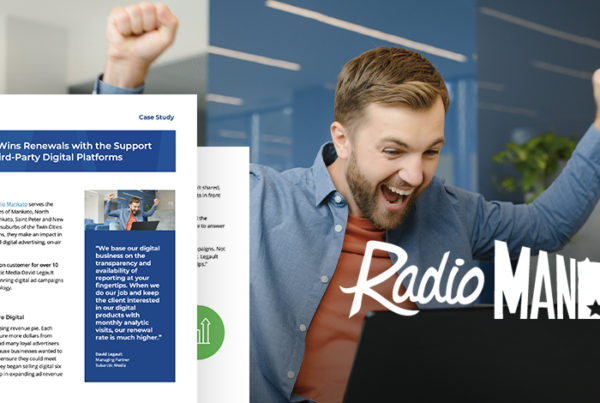In this edition of Ask the Expert, Marcia Chase, Implementations specialist at Marketron, answers the question, “How does technology help traffic managers?” Radio traffic software has been a tool for these professionals for decades. With innovation, these systems have evolved, supporting every workflow necessary for the life cycle of a spot ad.
Chase has deep roots in radio, working for stations before joining Marketron. She’s witnessed radio traffic platforms become modernized and optimized, creating greater efficiency and productivity.

Radio Is Dynamic; Its Technology Must Be, Too
Chase characterized radio operations as dynamic. There are many pieces and parts in the process of logs. Previously, these were very manual tasks. Automation has changed this for the better and manages inserting last-minute spots without the panic.
For radio traffic software to meet the needs of traffic managers, its features must account for an environment where things can change on the fly.
Efficiency-Focused Features
Chase offered several examples of how traffic systems deliver efficiently. Reconciliation of logs by pulling automation files was one. It shows what actually played and identifies any that didn’t. Traffic managers can then insert any makegoods.
Pulling reports is also seamless in most traffic platforms. Having standard and custom reporting options that generate in a few clicks is valuable. It once took hours to create these, and it may still, depending on a system’s capabilities.
Electronic invoicing is also a time saver for traffic departments. They have to work with finance or are responsible for billing. There’s no printing, folding, or stamping required, tasks that can take up to a whole day to complete.
Chase noted that the shift to electronic invoicing simplifies the entire process and allows traffic teams to focus on other work.
Optimizing Traffic Systems
Some stations may not even know about all the things their traffic system can do. For software that has regular releases and updates, those who have been using them for years may overlook these.
It could even be something as simple as removing duplicate work. Organizations with multiple stations may all be running the same promo, but you’d have to duplicate 10 times for 10 stations. There’s now functionality that does this for you.
It’s the same with logs, which stations can share instead of manage separately. Chase shared that traffic professionals can build and customize a basic log as needed. Doing this manually eats away at productivity and may invite more human error, too.
Closing Advice for Traffic Managers
Chase offered some wisdom for this group. She counseled traffic teams to be patient with sales and be willing to take orders at the last minute.
Another note is to be curious about your traffic system. Even if you’ve been doing something the same way for years, investigate your options, as there may be a quicker way. Chase encouraged stations to take advantage of training, support and resource libraries from software providers.
Want to know what traffic managers think about their current tech stack?






